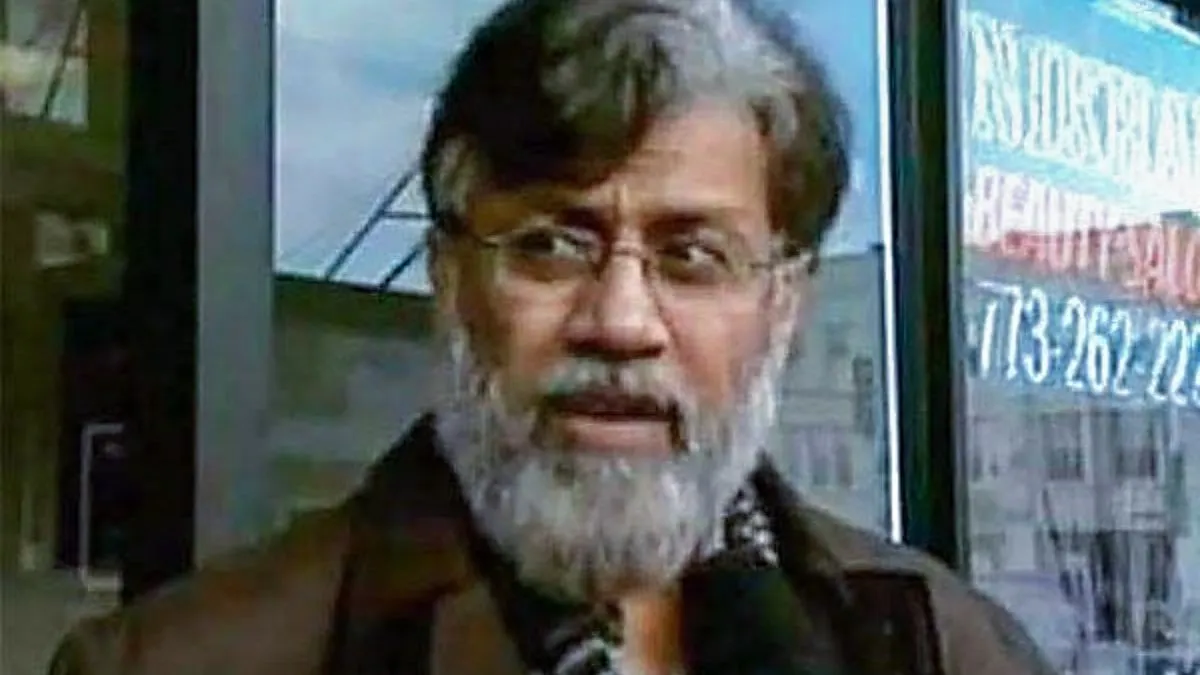- By Priyanka Koul
- Sat, 25 Jan 2025 04:26 PM (IST)
- Source:JND
United States has cleared the extradition of 26/11 Mumbai attacks convict Tahawwur Rana to India. This comes after a US court dismissed a review petition challenging his extradition, marking the end of Rana’s legal options to avoid being sent to India.
India has been pursuing Rana’s extradition for years, as he is a wanted figure in the 2008 Mumbai terrorist attacks case. A Canadian national of Pakistani origin, Rana’s extradition represents a significant step in bringing the accused to justice for one of the deadliest terror incidents in India’s history.
US Supreme Court Rejects Rana’s Final Plea
On January 21, 2025, the US Supreme Court denied Rana’s petition for a writ of certiorari, which sought to block his extradition to India. This denial follows multiple legal battles, including decisions by lower courts such as the US Court of Appeals for the Ninth Circuit, which upheld the India-US Extradition Treaty as grounds for Rana’s extradition. The Supreme Court’s decision effectively seals his fate, paving the way for his transfer to Indian authorities.
Who is Tahawwur Rana?
Tahawwur Hussain Rana is a former Pakistani Army doctor turned businessman who was tried in a US District Court for supporting a terrorist organisation. He was accused of aiding both the 26/11 Mumbai attacks and a foiled terror plot in Denmark. While he was acquitted of terrorism-related charges in India, he was convicted for providing logistical support for the Denmark conspiracy and sentenced to 14 years in prison. His close association with David Coleman Headley, a Pakistani-American and key conspirator in the Mumbai attacks, has been a focal point of investigations.
In 2023, the Mumbai Police filed a 400-page supplementary chargesheet outlining Rana’s involvement in the 26/11 attacks. According to the chargesheet, Rana stayed at a Mumbai hotel just days before the attacks and facilitated Headley’s acquisition of an Indian tourist visa using forged documents. The chargesheet also revealed email exchanges between Rana and Headley discussing Major Iqbal, a member of Pakistan’s ISI and a co-conspirator in the attacks.
Timeline of Extradition Efforts
December 4, 2019: India submitted a diplomatic note to the US requesting Rana’s extradition.
June 10, 2020: India filed a formal complaint seeking Rana’s provisional arrest.
August 2018: An Indian court issued an arrest warrant for Rana.
2020: The Joe Biden administration expressed support for Rana’s extradition to India.
In 2009, David Headley was arrested in Chicago and later pleaded guilty to 12 terrorism-related charges, including those linked to the Mumbai attacks. His plea agreement included a clause preventing his extradition. However, Headley’s testimony implicated Rana, leading to his conviction for the Denmark plot. Rana’s attempts to secure compassionate release during the COVID-19 pandemic were denied, and the US government promptly acted on India’s extradition request.
Also Read: AAP Releases 'Dishonest' Poster Ahead Of Delhi Election, It Includes Rahul Gandhi's Name
Charges Against Rana
Rana faces accusations of assisting in the planning and execution of the 26/11 Mumbai attacks. He is alleged to have collaborated with David Headley and Lashkar-e-Taiba (LeT), the Pakistani terror group behind the attack. The Mumbai siege, which lasted over 60 hours, resulted in the deaths of 166 people, including six Americans, as terrorists targeted iconic landmarks such as the Taj Mahal Palace Hotel and Chhatrapati Shivaji Terminus.
The US Supreme Court’s decision to approve Tahawwur Rana’s extradition to India is a significant victory for Indian authorities in their pursuit of justice for the victims of the 26/11 Mumbai attacks. As Rana’s extradition process moves forward, it underscores the global commitment to combating terrorism and ensuring accountability for those involved in such heinous acts.


